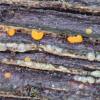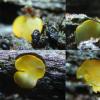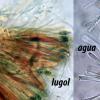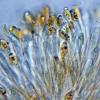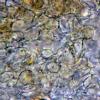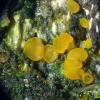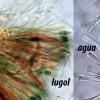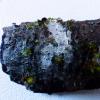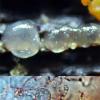
19-02-2026 13:50
Margot en Geert VullingsWe found this collection on deciduous wood on 7-2-

16-02-2026 21:25
 Andreas Millinger
Andreas Millinger
Good evening,failed to find an idea for this fungu

08-12-2025 17:37
 Lothar Krieglsteiner
Lothar Krieglsteiner
20.6.25, on branch of Abies infected and thickened

17-02-2026 17:26
 Nicolas Suberbielle
Nicolas Suberbielle
Bonjour à tous, Je recherche cette publication :

15-02-2026 04:32
One more specimen that is giving me some descent a

17-02-2026 13:41
Isabelle CharissouBonjour, est-ce que quelqu'un pourrait me fournir

16-02-2026 18:34
 Thierry Blondelle
Thierry Blondelle
Bonjour,La micro de cet anamorphe de Hercospora su
Discos naranja
Castillo Joseba,
14-05-2017 22:39
No he conseguido ver ninguna espora
a ver si se puede decir algo
Joseba
Peter Püwert,
15-05-2017 00:06
Re : Discos naranja
Hi Joseba,
this looks after Orbilia (aurantiorubra-group, possibly O. xanthoguttulata ?) One must press the spores properly from the ascus. Whether this is correct I also don't know. Zotto has there definitely the correct answer.
In addition I don't have microphotos unfortunately any more.
Greetings Peter.
this looks after Orbilia (aurantiorubra-group, possibly O. xanthoguttulata ?) One must press the spores properly from the ascus. Whether this is correct I also don't know. Zotto has there definitely the correct answer.
In addition I don't have microphotos unfortunately any more.
Greetings Peter.
Hans-Otto Baral,
15-05-2017 07:48

Re : Discos naranja
Hola Joseba & Peter
indeed this is O. xanthuguttulata! The spores are visible inside the asci, especially the apical spore body (I put arrows). The basal spores are inverted, as one arrow indicates.
Typical are the ellipsoid-spathulate paraphysis apices partly tipped by a hyaline exudate cap and containing yellow oil drops which stain green in iodine as you properly show.
Did you have rain and the fungus was hydrated? Normally one finds them in the dry state on exposed substrate. This is the inner side of bark, of a branch I assume. Was it still attached as you are sure with Fagus? What are these whitish fruitbodies in rows?
I would be happy to know the collectionn data and coordinates. In northern Spain there is only one sample in Asturias and one in Navarra, in southern Spain there are more, from Cataluna to Andalucia, also two in Guadalajara in the centre. The substrate is very diverse and includes also conifers. Collections go up to Finland.
Zotto
indeed this is O. xanthuguttulata! The spores are visible inside the asci, especially the apical spore body (I put arrows). The basal spores are inverted, as one arrow indicates.
Typical are the ellipsoid-spathulate paraphysis apices partly tipped by a hyaline exudate cap and containing yellow oil drops which stain green in iodine as you properly show.
Did you have rain and the fungus was hydrated? Normally one finds them in the dry state on exposed substrate. This is the inner side of bark, of a branch I assume. Was it still attached as you are sure with Fagus? What are these whitish fruitbodies in rows?
I would be happy to know the collectionn data and coordinates. In northern Spain there is only one sample in Asturias and one in Navarra, in southern Spain there are more, from Cataluna to Andalucia, also two in Guadalajara in the centre. The substrate is very diverse and includes also conifers. Collections go up to Finland.
Zotto
Castillo Joseba,
15-05-2017 14:54
Re : Discos naranja
Hola Zotto, muchisimas gracias por tus comentarios y la identificación.
Te respondo a tus preguntas:
1º Si llovió los dos dias anteriores y el tronco de unos 15 cm. de diametro estaba semienterrado, cuando intenté cogerlo, me quedé con la corteza en la mano.
2º creo que es Fagus, ya que es el arbol predominante en la zona, tambien hay algunos Corilus, pero me parece que son menos gruesos... pongo una foto de la corteza, por si tu puedes identificarla.
3º Los frutos blanquecinos a mi me parece que son Exidia thuretiana o Myxarium nucleatum, pongo una foto.
4º te paso los datos y corrdenadas a tu correo
Saludos
Joseba
Te respondo a tus preguntas:
1º Si llovió los dos dias anteriores y el tronco de unos 15 cm. de diametro estaba semienterrado, cuando intenté cogerlo, me quedé con la corteza en la mano.
2º creo que es Fagus, ya que es el arbol predominante en la zona, tambien hay algunos Corilus, pero me parece que son menos gruesos... pongo una foto de la corteza, por si tu puedes identificarla.
3º Los frutos blanquecinos a mi me parece que son Exidia thuretiana o Myxarium nucleatum, pongo una foto.
4º te paso los datos y corrdenadas a tu correo
Saludos
Joseba

